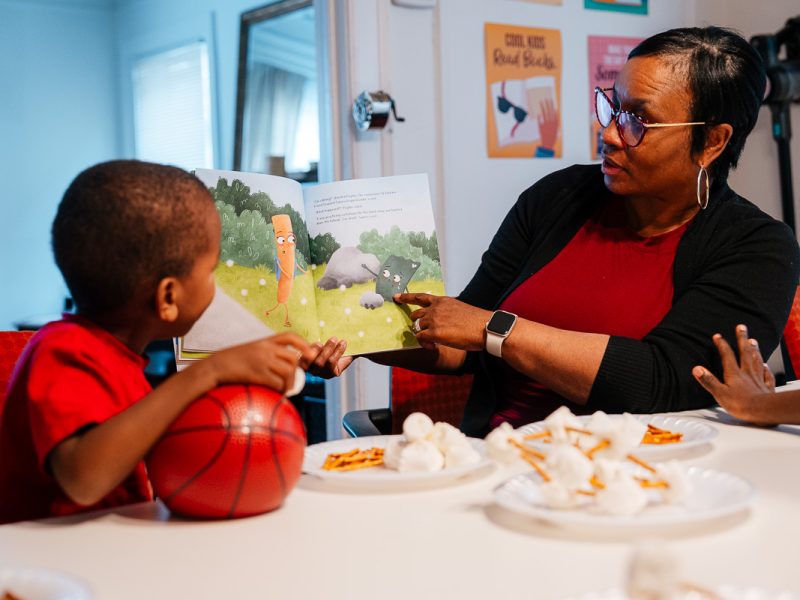Partner Partner Content 6 smart tips for teaching kids good financial habits
From creating an earning system to being a good role model, these tips can help set kids up with smart money habits.
It used to be that children learned about money when shopping out with parents, but as more transactions happen digitally, it’s easy for parents to forget about engaging with their children when making an online purchase. The good news is that parents can now use a mobile phone to have conversations with their kids about the best ways to earn, save and spend money and encourage good habits.

“A good understanding of how to be responsible with money starts with what kids see and learn at home,” says Radhika Duggal, CMO of Community & Business Development at Chase. “It’s important to bring your kids into conversations about money and include them in family financial decisions to help them understand how to budget, save and spend responsibly. What we do as parents today can help position them to understand money in the future.”
Duggal shares some simple things you can do today to help with the money talk:
Start with the basics
Have an open discussion as a family about how money is earned and spent. Discuss “needs” versus “wants” and how to balance both while also saving money for the future. Kids may realize that it costs money to buy groceries from the store, but may not understand where that money comes from, and that you also have other monthly household expenses, like water, WiFi, or electricity to pay for.
Build a budget
Discuss budgeting basics in age-appropriate language and get kids involved. For younger kids, bring them into the conversation when making a grocery list and show how you plan, budget, and buy ingredients for a family meal. For tweens and teens, discuss how to plan and budget for their summer activities with friends, or a family vacation.
It’s also important to remind and show children how to revisit your budget when planning a purchase, as priorities or expenses may have changed, which could impact how much the family can spend at any given time. For example, if you are saving up to buy a house, or a large household purchase that might impact how much extra spending money is available.
Set goals and make a plan
Incorporate your children into your financial goals, whether it’s something in the near future like saving for a new television or a longer-term goal like saving for college. Then ask your child to make a list of things he or she would like to save for— an item or experience — and help them create a plan for achieving those goals, alongside your own savings plan. Beyond individual goals, families can also work together to set and achieve common financial goals, like saving for a big vacation or college. If you are planning a family vacation, have your child create a budget for them to purchase souvenirs or maybe a special treat, like ice cream.
Consider kid-friendly financial tools
Consider helping your kids learn through real financial tools — like a debit card, bank account, or investment account. Chase offers Chase First Banking — a debit card for kids ages 6 to 17 with no Monthly Service Fee that gives parents the control they want and kids the freedom they need to learn. Parents can set spending limits, track their child’s purchases, and even help them with savings goals. Tools like First Banking offer set parameters to give parents peace of mind while helping your child learn how to be responsible with their money.
Create a system for earning money
Help kids understand the relationship between work and reward by setting up a system for them to earn money. Every family is different in what works best for them, but some common approaches are weekly allowances for chores. Other ways to earn money include setting up a side job like a lemonade stand, mowing lawns or babysitting in the neighborhood. Because the child’s Chase First Banking account is connected to the adult’s checking account, transferring money earned is easy through the app.
Be a role model
Children absorb what you say and do. Kids will often mimic your financial habits, so remember you are a role model. Keep financial topics a regular part of family conversations and ensure your kids feel comfortable coming to you with any money questions they have, no matter how big or small.





